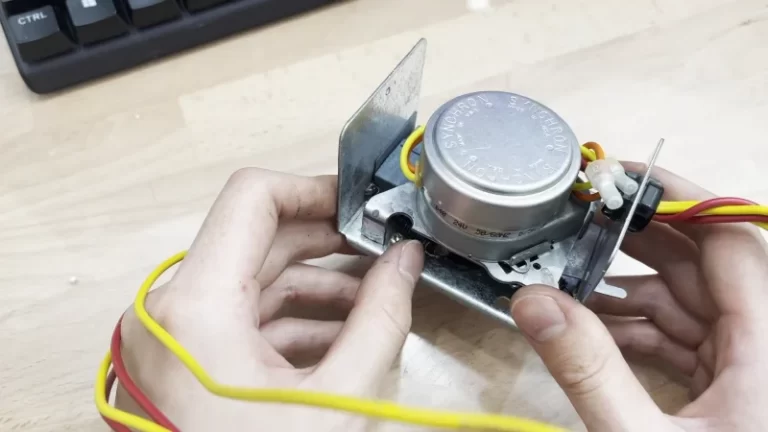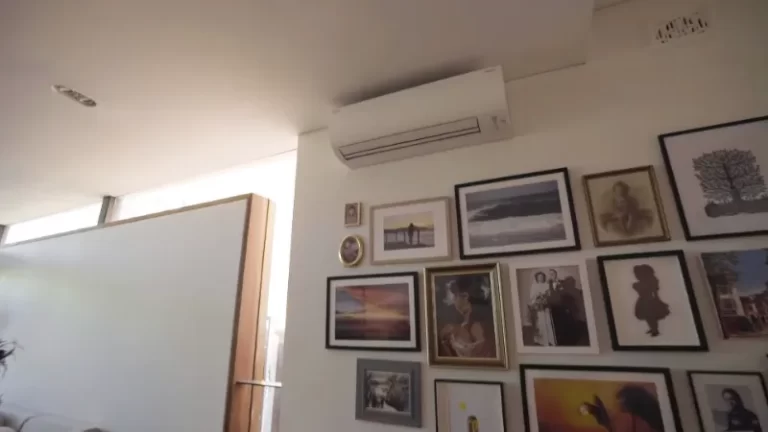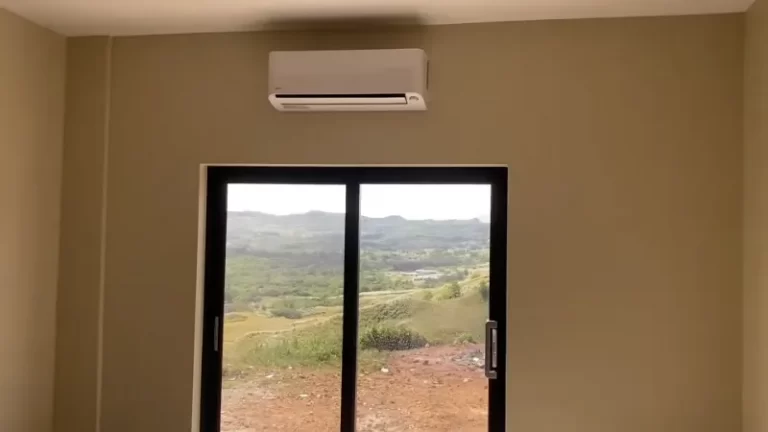Can I Pour Hot Water On Frozen Air Conditioner?
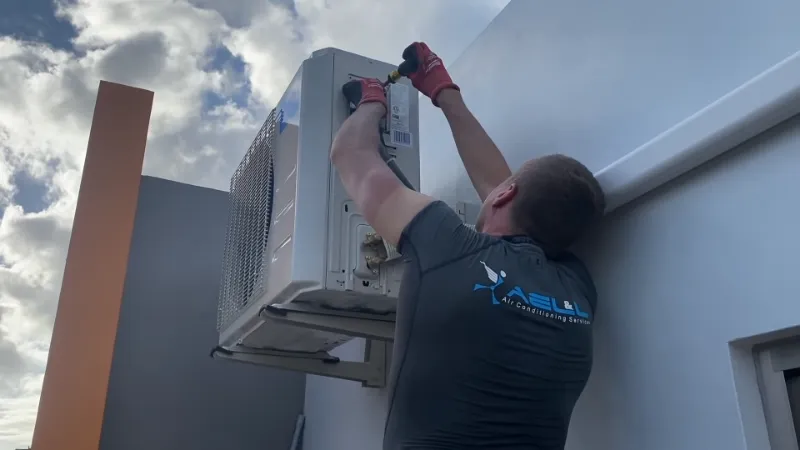
Pouring hot water on a frozen air conditioner is not recommended. This can cause a number of potential problems, such as causing the unit to overheat, damaging internal components, and potentially creating a fire hazard.
In this article, we will discuss the risks associated with pouring hot water on a frozen air conditioner and provide some alternative solutions to defrosting it safely.
You'll Learn About
Can I Pour Hot Water on Frozen Air Conditioner?
If hot water is poured on a frozen air conditioner, it can cause several problems. First, the heat from the water can cause the ice to expand and become harder to remove. This can result in further damage to the unit and can also cause a leak.
Second, the water can enter the evaporator coils and cause them to corrode or rust. This can lead to costly repairs or even a complete replacement of the unit. Finally, the water can damage the fan motor and other electrical components, which can cause the unit to stop working altogether.
Properly Thaw a Frozen Air Conditioner
The safest way to thaw a frozen air conditioner is to turn it off and wait for the ice to melt on its own. If the unit has been running for a long time and the ice is too thick to melt naturally, you can use a hair dryer to gently warm the ice.
You should never use hot water as this can cause damage to the unit.
Preventing Frozen Air Conditioners
The best way to prevent frozen air conditioners is to keep the unit running regularly and to change the filter regularly. This will ensure that the air flow is not restricted, which can cause the unit to freeze.
You should also make sure that the unit is installed properly and that it is not blocked or covered with anything that can prevent air flow.
Troubleshooting a Frozen Air Conditioner
If your air conditioner is frozen, you should first check the air filter. If it is clogged or dirty, replace it with a new one. You should also check the thermostat to make sure it is set properly and that it is not set too low.
Finally, check the outdoor unit to make sure it is free of debris, leaves, and other obstructions.
When to Call a Professional
If you have tried all of the above steps and your air conditioner is still frozen, it is time to call a professional. A qualified technician can inspect the unit and determine the cause of the freeze.
They can also recommend a solution and provide any necessary repairs. If your unit is beyond repair, they can help you select a new one that will be more efficient and cost effective.
What to Do if Ice Freezes in Ac?
Turn off the air conditioner to allow the ice to defrost. Let the unit sit for 1-3 hours. Turn on just the fan for one hour. Change the air filter during this time. Check for any blockages or obstructions in the air vents.
Inspect the condenser coils for dirt and debris. Clean the condenser coils with a brush or vacuum. Check for any signs of leaks or damage in the refrigerant lines. Check the temperature settings and adjust if necessary.
Test the air conditioner to ensure it is working properly.
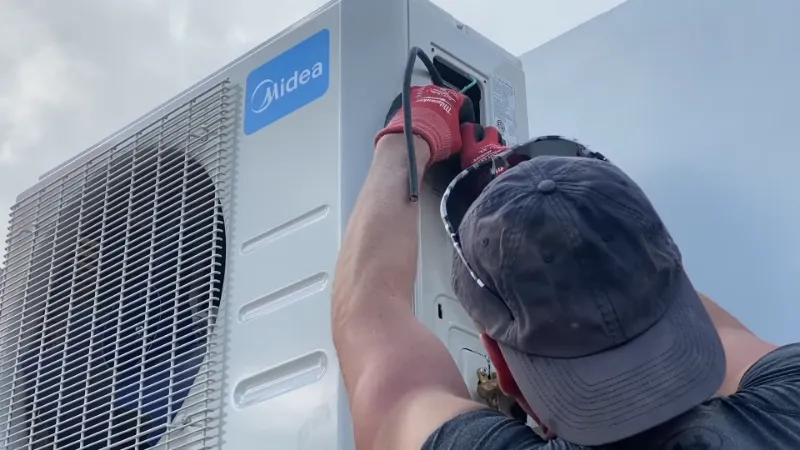
Can I Pour Water on My Ac Unit?
Yes, you can pour water on your AC unit to help keep it running efficiently. This can be done by spraying the condenser coils a couple of times a year. Doing this helps remove dust, dirt and debris that can block airflow.
This in turn helps to prevent the unit from overheating. It is important to make sure the water is not too hot or too cold. You should also avoid getting any water on the electrical components of the unit.
Spraying the unit with water can help to extend its life. It is also an easy and inexpensive way to keep your AC unit running smoothly. Make sure the hose you use has a light pressure setting to prevent any damage to the unit.
Overall, pouring water on your AC unit can be a beneficial way to keep it running efficiently.
How Long Will It Take for Ac to Unfreeze?
Unfreezing an air conditioner can take anywhere from 1-24 hours. The time it takes depends on the amount of ice buildup in the unit. Monitoring the unit is important while it is thawing. Check the drain pan to make sure it is not overflowing.
If the drain pan is full, the unit may take longer to unfreeze. If the air conditioner has a large amount of ice buildup, it may take longer to thaw. It is important to give the unit time to thaw naturally, without any forced heat.
If it takes longer than 24 hours to unfreeze, it is best to call a technician. Running the unit with ice present can cause further damage. To ensure the best results, be patient and allow the unit to defrost naturally.
How Long Should I Wait for My Ac to Unfreeze?
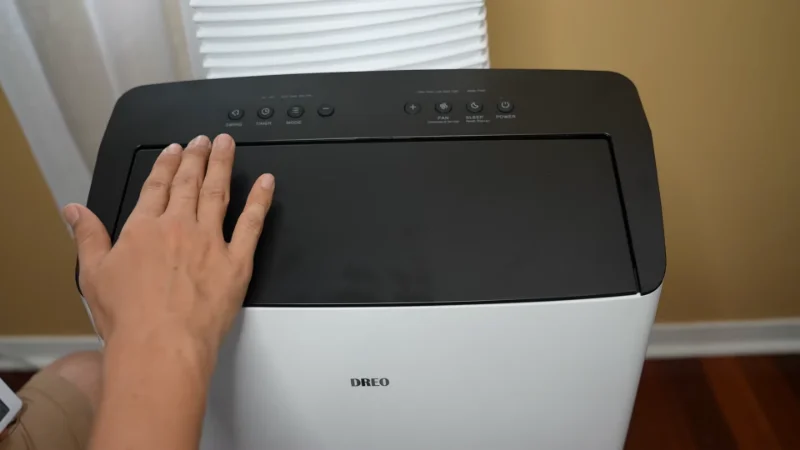
If your AC is frozen, it can take up to 24 hours to thaw out. This time can be shorter if the outside temperature is hot. You may also see some pooling water as the ice melts. To avoid any damage, place some towels under the AC unit.
If the AC doesn’t thaw after 24 hours, call a professional. Waiting for your AC to unfreeze is necessary. It is important to do this in order to prevent any damage. The thawing process can take anywhere from a few hours up to a day.
Hotter temperatures can reduce the waiting time. If the AC remains frozen after 24 hours, seek professional help.
What Happens if You Use Hot Water to Defrost?
Defrosting food in hot water is not recommended due to the risk of bacteria growth. Hot water can cause the outside of the food to thaw faster than the inside. This can create an ideal temperature for bacteria to grow quickly.
Bacteria growth can cause food poisoning, which can be dangerous. If you use hot water to defrost, it is important to cook the food immediately. This can help to reduce the risk of bacteria growth.
It is also important to keep the food at a safe temperature while defrosting. If the food is left at room temperature, bacteria can grow quickly. It is also important to make sure that the food is completely defrosted before cooking.
If the food is not defrosted thoroughly, bacteria can still be present in the food.
How Do You Unfreeze Ac Coils?
The evaporator coils are located inside the air handler or indoor unit of the air conditioning system. The evaporator coils absorb heat from the air inside the house, cooling it down. Frozen evaporator coils look like a sheet of ice or frost covering the coils.
If you notice a buildup of ice on the copper tubing, it’s a sign that the evaporator coils are freezing up.
Reasons for Frozen Evaporator Coils
The most common reason for frozen evaporator coils is low refrigerant levels. Low refrigerant levels cause the evaporator coils to become too cold and form ice on the outside. Low air flow over the coils can also cause them to freeze.
This can be caused by a dirty air filter, blocked vents, or a faulty blower motor.
Turn Off the Air Conditioner
The first step in unfreezing the evaporator coils is to turn off the air conditioner. Turning off the power to the indoor unit at the circuit breaker will help prevent further damage to the air conditioning system.
It will also give the evaporator coils time to thaw out.
Removing Ice From the Coils
Once the evaporator coils have had time to thaw out, you can remove any ice that is left on the coils. You can use a soft brush to gently brush away any ice or frost that is still present. Make sure not to use an abrasive tool, as this can damage the evaporator coils.
Preventing Future Freezing
Once you have unfrozen the evaporator coils, you should take steps to prevent them from freezing again. Check the refrigerant levels and make sure they are at the correct level. Change the air filter regularly to ensure proper air flow over the coils.
And have a professional inspect the blower motor and other components of the air conditioning system to make sure they are working properly.
Following these steps can help you avoid future problems with frozen evaporator coils and ensure that your air conditioning system is running efficiently.
Can You Pour Hot Water on a Frozen Ac Unit in Winter?
In winter, frozen air conditioners are a common problem. To fix this issue, many people turn to pouring hot water on their AC unit. Pouring hot water can help to quickly thaw the ice on the AC unit. Hot water is not strictly necessary, warm or running water can also be effective.
Pouring hot water on an AC unit is a safe and simple solution. It is important to ensure the water is not boiling, to avoid damaging the unit. If the frozen AC unit is not thawing, it is best to call a technician for professional help.
If done correctly, pouring hot water on a frozen AC unit can get it running again quickly. Taking preventative measures can help stop the AC unit from freezing in future winters. In conclusion, pouring hot water on a frozen AC unit is an effective way to thaw the ice in winter.
What Causes Ac to Freeze Up Inside?
Low refrigerant levels in an air conditioning system can cause it to freeze up. A refrigerant leak is a common cause of reduced pressure and freezing. Dirty air filters can block airflow and cause the coil to freeze up.
A restricted airflow across the coil can cause freezing. Clogged or blocked drain lines can result in freezing. Low outdoor temperatures can cause freezing on the outdoor coil. A malfunctioning thermostat can result in freezing.
An old or oversized system can freeze up. Low fan speed can cause freezing due to reduced air circulation. Insufficient maintenance can lead to freezing and other problems.
To Recap
In conclusion, pouring hot water on a frozen air conditioner is not recommended. It can create a number of issues, such as overheating, damaging internal components, and creating a potential fire hazard.
Instead, you should allow the unit to defrost gradually, or use an electric space heater to help speed up the process. If the issue persists, it is best to contact a professional for advice and assistance.

